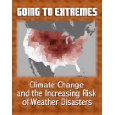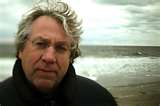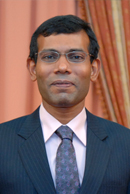 Amidst the scarcely believable frenzy of climate change denial which has taken hold in sectors of American politics, to say nothing of the equally scarcely believable silence from the White House, we need to be reminded that there are sane and steady political voices in that country, however difficult it is for them currently to gain a hearing. Representatives Edward Markey and Henry Waxman recently had the minority staffs of the Committee on Natural Resources and the Committee on Energy and Commerce prepare a report for them Going to Extremes: Climate Change and the Increasing Risk of Weather Disasters (pdf here). It’s now available as a Kindle edition and in short compass reports the scientific case that global warming is shifting the odds towards extreme events.
Amidst the scarcely believable frenzy of climate change denial which has taken hold in sectors of American politics, to say nothing of the equally scarcely believable silence from the White House, we need to be reminded that there are sane and steady political voices in that country, however difficult it is for them currently to gain a hearing. Representatives Edward Markey and Henry Waxman recently had the minority staffs of the Committee on Natural Resources and the Committee on Energy and Commerce prepare a report for them Going to Extremes: Climate Change and the Increasing Risk of Weather Disasters (pdf here). It’s now available as a Kindle edition and in short compass reports the scientific case that global warming is shifting the odds towards extreme events.
Evidence is mounting alarmingly. Over the last several years a barrage of extreme weather events in the US and the world has been consistent with what scientists have been predicting from global warming. “Indeed this summer US weather was almost apocalyptic.” The introduction mentions some of the events of the past two years, noting that NOAA has recently concluded after looking through 50 years of weather data that droughts like the recent 2011 Texas drought are roughly twenty times more likely because of global warming. “Global warming has stacked the deck with extra jokers.”

 The title to this post may seem like an odd question, but I think it is an inescapable one, as I hope to demonstrate. The US Department of Agriculture has a mandate for a
The title to this post may seem like an odd question, but I think it is an inescapable one, as I hope to demonstrate. The US Department of Agriculture has a mandate for a  The reign of climate change denial in the US Republican Party is an extraordinary spectacle, hard to credit in an educated modern democracy. It’s also a very sad spectacle in view of the prominent role the US plays in contributing to climate change and the potential leading role it could play in mitigating it. I often wonder what members of the party who take science seriously and understand climate change make of the phenomenon. A recent podcast interview with noted atmospheric scientist
The reign of climate change denial in the US Republican Party is an extraordinary spectacle, hard to credit in an educated modern democracy. It’s also a very sad spectacle in view of the prominent role the US plays in contributing to climate change and the potential leading role it could play in mitigating it. I often wonder what members of the party who take science seriously and understand climate change make of the phenomenon. A recent podcast interview with noted atmospheric scientist  An interesting
An interesting